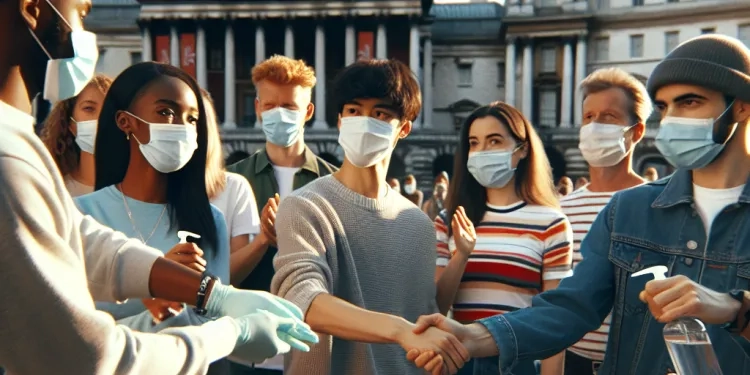
Find Help
More Items From Ergsy search
-

Are measles outbreaks common in the UK?
Relevance: 100%
-

Why are measles outbreaks still occurring?
Relevance: 92%
-

How does the UK monitor measles outbreaks?
Relevance: 92%
-
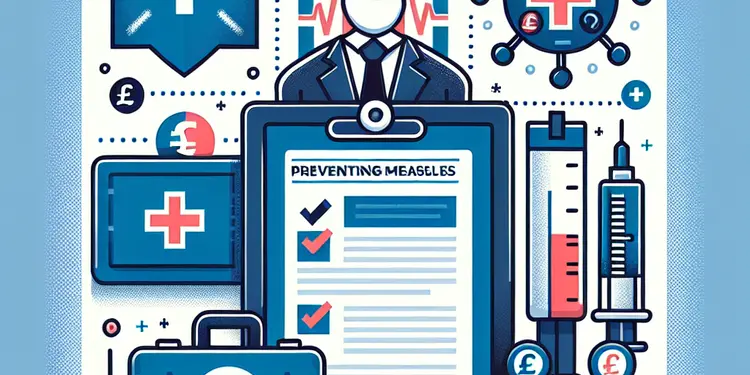
How can measles outbreaks be prevented?
Relevance: 91%
-
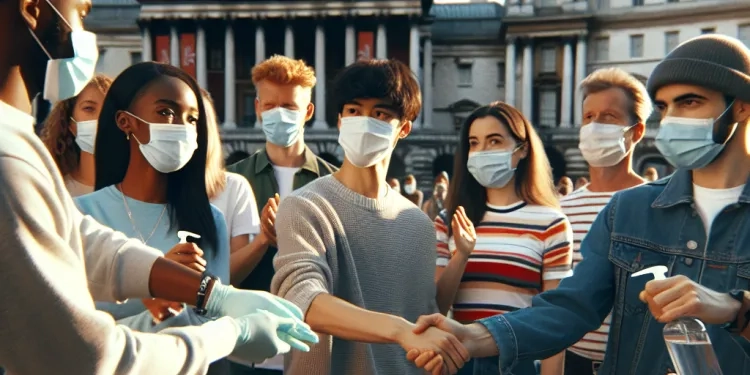
What should you do during a measles outbreak?
Relevance: 87%
-
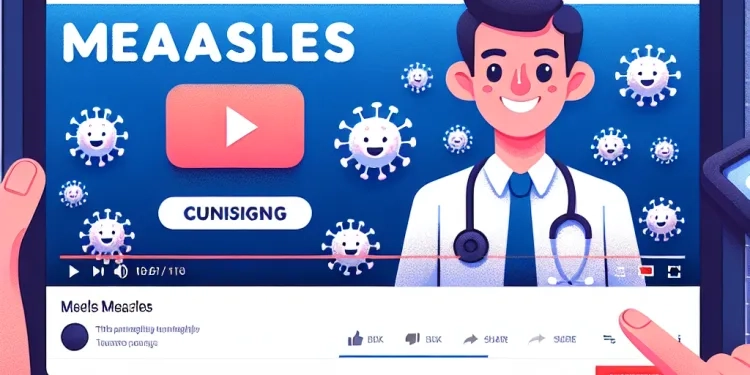
Measles
Relevance: 72%
-

Are measles cases rising in the UK?
Relevance: 69%
-

How contagious is measles?
Relevance: 68%
-

Is there a treatment for measles?
Relevance: 67%
-

Are measles cases currently rising in the UK?
Relevance: 67%
-
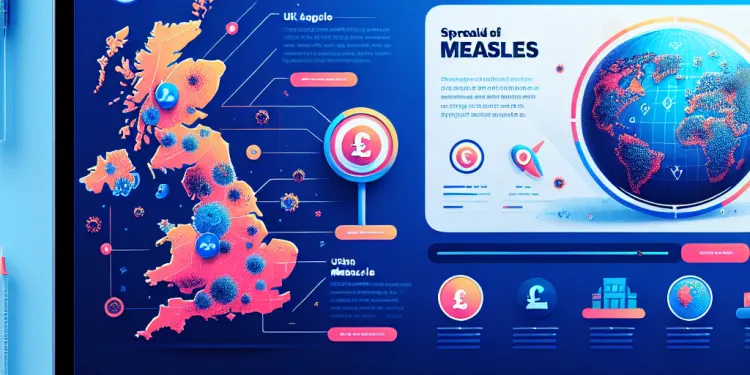
Are measles more common outside of the UK?
Relevance: 66%
-

Why is measles less common in the UK?
Relevance: 66%
-
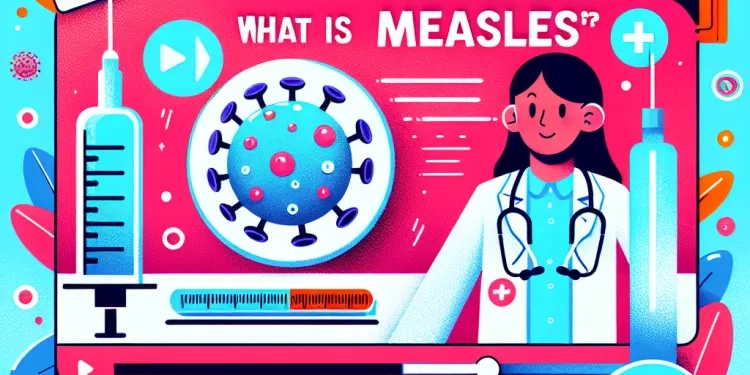
What is measles?
Relevance: 66%
-

What is causing the rise in measles cases in the UK?
Relevance: 65%
-
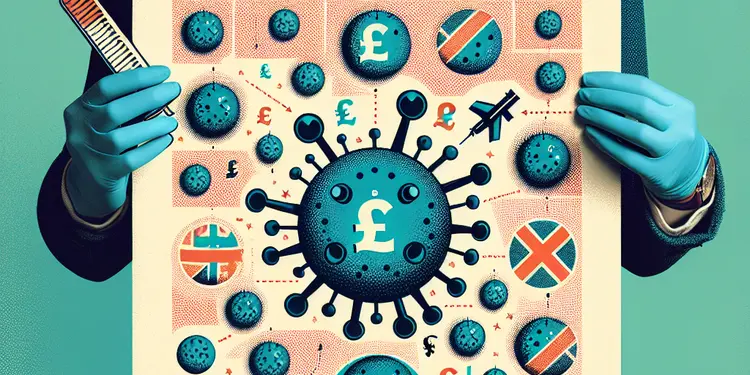
How is measles spread?
Relevance: 65%
-
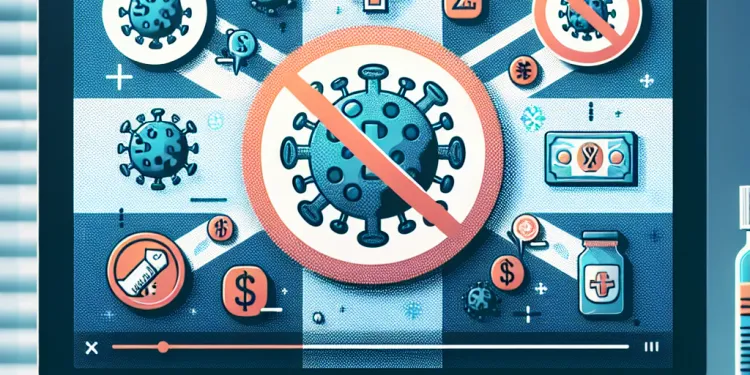
How can measles be prevented?
Relevance: 65%
-

Is there a treatment for measles?
Relevance: 64%
-

Which countries have higher rates of measles?
Relevance: 63%
-

How is measles transmitted?
Relevance: 63%
-

How is measles transmitted?
Relevance: 63%
-

Are adults in the UK at risk from measles?
Relevance: 63%
-

Can measles be serious?
Relevance: 62%
-
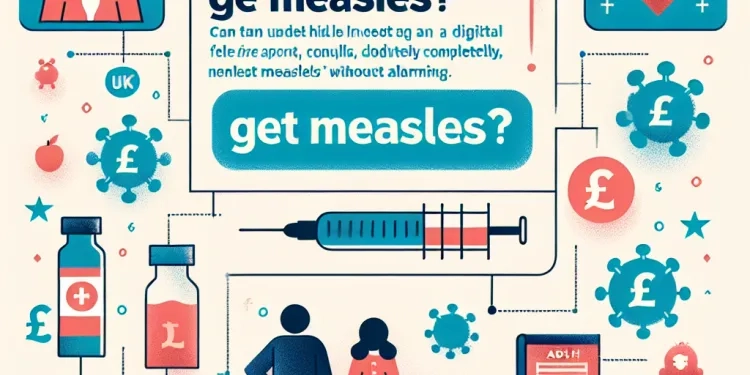
Can adults get measles?
Relevance: 62%
-

Is it necessary to get a measles vaccine before travelling?
Relevance: 61%
-

How does vaccination affect measles rates?
Relevance: 60%
-

Is there a risk of global spread if measles cases rise in the UK?
Relevance: 60%
-

What are the symptoms of measles?
Relevance: 60%
-
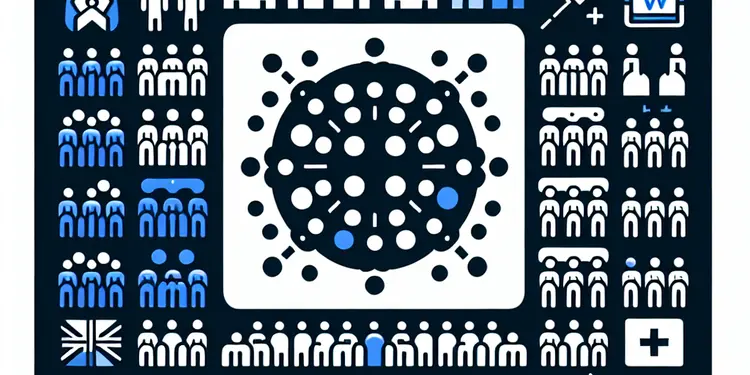
What is herd immunity and how does it relate to measles?
Relevance: 59%
-
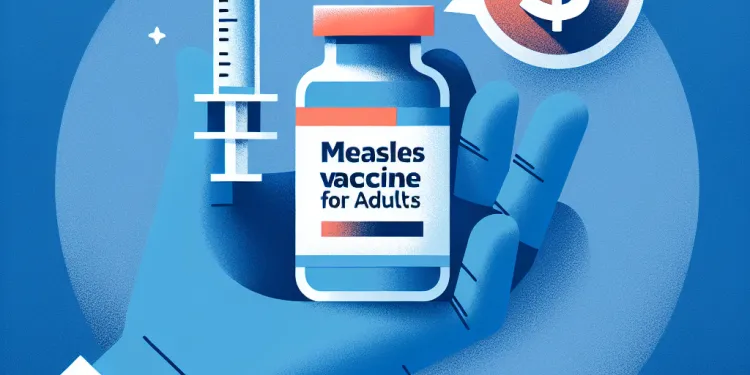
Can the measles vaccine be given to adults?
Relevance: 58%
-
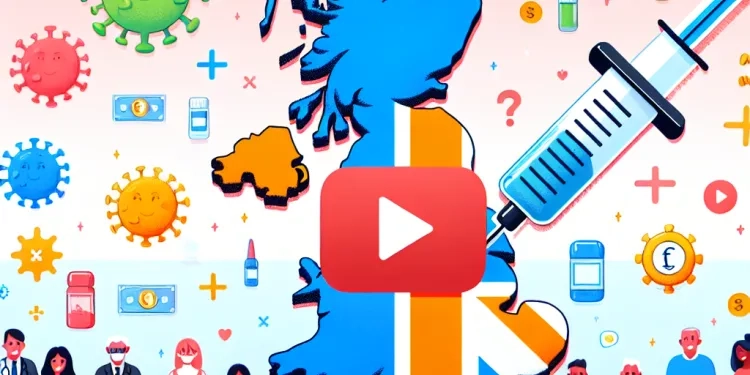
What is the current measles vaccination coverage in the UK?
Relevance: 58%
-

What are the symptoms of measles?
Relevance: 58%
-

Who is most at risk from measles?
Relevance: 56%
-
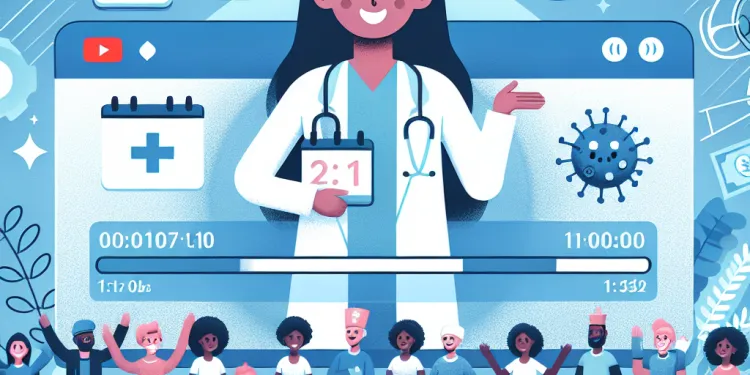
How long is a person with measles contagious?
Relevance: 55%
-

What should I do if I suspect I have measles?
Relevance: 54%
-
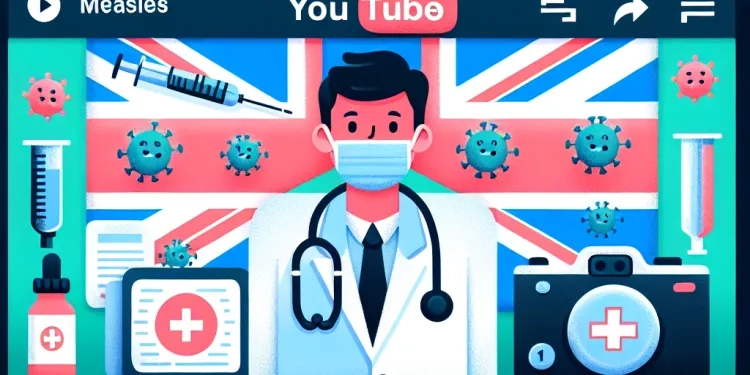
Can you get measles more than once?
Relevance: 54%
-

Can measles cause complications?
Relevance: 54%
-

Can measles be treated?
Relevance: 53%
-
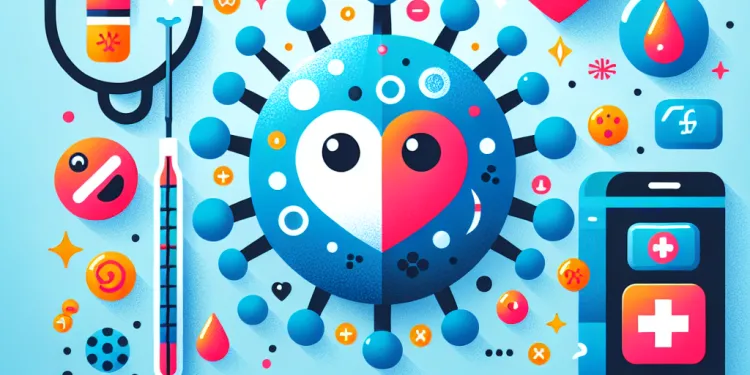
What are the symptoms of measles?
Relevance: 53%
-

Is Rubella the same as measles?
Relevance: 53%
-

What complications can arise from measles?
Relevance: 53%
What Should You Do During a Measles Outbreak?
Measles, a highly contagious viral infection, can spread rapidly within communities that have low vaccination coverage. During an outbreak, it is crucial to take proactive measures to protect yourself and your community, especially in settings like the United Kingdom where measles cases occasionally re-emerge due to gaps in immunization. Below are essential steps to consider during a measles outbreak.
Vaccination and Immunisation
The most effective way to prevent the spread of measles is through vaccination. Ensure that you and your family members are up to date with the MMR (measles, mumps, and rubella) vaccine. In the UK, children are typically given two doses: one at 12 months of age and another at 3 years and 4 months. Check your immunisation records and discuss any concerns with your GP. Adults and older children can also receive the vaccine if they were not vaccinated as infants or if they require a booster.
Avoiding Exposure
In the event of an outbreak, limit your presence in crowded public places and monitor public health announcements regarding affected areas. If someone in your household has been exposed to or contracted measles, they should stay at home and avoid contact with others, especially vulnerable individuals such as infants, pregnant women, and those with weakened immune systems.
Recognize Symptoms
Familiarize yourself with the symptoms of measles, which include a high fever, cough, runny nose, inflamed eyes, and a distinctive red rash. Symptoms typically appear 10 to 12 days after exposure. If you suspect that you or a family member has measles, contact healthcare services for advice on what steps to take next. Avoid visiting clinics or hospitals directly to prevent spreading the virus to others.
Seek Medical Advice
During an outbreak, it is important to seek medical guidance if you believe you have been exposed to measles or if symptoms develop. In the UK, ring NHS 111 for professional advice on managing symptoms and minimizing the risk of transmission. In emergencies, or if the symptoms become severe, medical attention must be sought immediately.
Community Support and Information
Stay informed about the outbreak through reliable sources such as the NHS and Public Health England. Promote vaccination and share accurate information within your community to counteract misinformation and reduce panic. Community efforts and adherence to public health advice play a significant role in controlling and ending an outbreak effectively.
What Should You Do During a Measles Outbreak?
Measles is a virus that can make people very sick. It spreads quickly, especially if people are not vaccinated. During a measles outbreak, it is important to keep yourself and others safe. Here are some simple steps to follow if there is a measles outbreak.
Vaccination and Immunisation
The best way to stop measles is by getting vaccinated. Make sure you and your family have the MMR vaccine. This stops measles, mumps, and rubella. In the UK, children usually get the MMR vaccine twice: once when they are 1 year old and again when they are about 3 and a half years old. Check with your doctor if you are not sure about your vaccinations. Adults and older children can also get the vaccine if they missed it when they were younger.
Avoiding Exposure
During a measles outbreak, try not to go to crowded places. Listen for health news about where measles is spreading. If someone in your house has measles or has been near someone with measles, they should stay at home. They should not be around other people, especially babies, pregnant women, and people who are not very strong.
Recognize Symptoms
Learn what measles looks like. The signs include a high fever, cough, runny nose, sore eyes, and a red rash. These signs usually show up 10 to 12 days after being near someone with measles. If you think you have measles, call a doctor for what to do next. Do not go straight to the doctor’s office or hospital, because you might spread it to others.
Seek Medical Advice
If there is a measles outbreak and you think you have it, ask a doctor for help. In the UK, you can call NHS 111 for advice. If you have serious symptoms, get medical help straight away.
Community Support and Information
Stay updated with trustworthy sources like the NHS and Public Health England. Tell others about the vaccine and help correct wrong information. Working together and following health advice helps stop the outbreak.
Frequently Asked Questions
What is measles?
Measles is a highly contagious viral infection that can lead to serious health complications, especially in young children.
What are the symptoms of measles?
Symptoms include a high fever, cough, runny nose, red and watery eyes, and a rash that typically starts on the face and spreads to the rest of the body.
How is measles spread?
Measles spreads through respiratory droplets when an infected person coughs or sneezes. It can also spread by touching surfaces contaminated with the virus.
What should you do if there is a measles outbreak in your area?
Stay informed through local health authorities, ensure vaccinations are up to date, and follow any public health recommendations.
Is there a vaccine for measles?
Yes, the MMR vaccine, which protects against measles, mumps, and rubella, is available and recommended.
Who should get the MMR vaccine?
It is typically administered to children, but adults who haven't been vaccinated or are unsure should consult with their healthcare provider.
Can measles be prevented?
Yes, vaccination is highly effective at preventing measles.
What should I do if I suspect I or my child has measles?
Contact your GP or NHS 111 before visiting, to avoid spreading the virus in medical facilities.
Are there treatments available for measles?
There is no specific antiviral treatment for measles; care is supportive, including keeping hydrated and using fever reducers.
Is measles serious?
Yes, complications can include encephalitis, pneumonia, and, in rare cases, death. It's particularly serious for young children and unvaccinated individuals.
Can measles cause complications during pregnancy?
Yes, contracting measles during pregnancy can lead to premature birth or low birth weight.
What is herd immunity and how does it relate to measles?
Herd immunity occurs when a high percentage of the community is vaccinated, reducing the spread of disease and protecting those who cannot be vaccinated.
If someone has had measles once, can they get it again?
No, once a person has recovered from measles, they are usually immune for life.
Why are measles outbreaks occurring if there is a vaccine available?
Outbreaks can occur in areas with lower vaccination rates or where the virus is imported from areas with ongoing outbreaks.
How can I support public health efforts during a measles outbreak?
Ensure your vaccinations are current, promote vaccine awareness, and follow guidance from public health officials to limit the spread.
What is measles?
Measles is a sickness.
It can make you feel very unwell.
People with measles get a red rash and a high fever.
Measles spreads easily from one person to another.
It is important to see a doctor if you think you have measles.
Ask an adult to help you if you need to.
Using pictures or videos can help you understand more about measles.
Measles is a virus that spreads very easily. It can make people, especially young children, very sick.
What happens when you have measles?
You might feel very hot with a fever. You could also have a cough, a runny nose, and red, watery eyes. You might get spots or a rash on your face that spreads to your body.
How does measles spread?
Measles can pass from one person to another.
When someone with measles coughs or sneezes, tiny drops filled with the measles virus fly into the air.
If you breathe in these drops or touch them, you can catch measles too.
To stay safe, wash your hands often and cover your mouth when you cough or sneeze.
Measles is a sickness. It spreads when someone sick coughs or sneezes. The tiny drops from their cough or sneeze can make other people sick.
You can also get sick by touching things like tables or doorknobs if they have the germs on them. Be sure to wash your hands and cover your mouth when you cough or sneeze.
What to do if measles is in your area
1. **Know the symptoms:** Look for fever, rash, cough, runny nose, and red eyes.
2. **See a doctor:** If you or someone you know has symptoms, go to the doctor.
3. **Get vaccinated:** Make sure you and your family have the MMR vaccine to stay safe.
4. **Stay away from sick people:** This helps to stop spreading the illness.
For more help, ask a doctor or health worker.
Listen to your local health experts. Make sure your vaccines are current. Follow any health advice they give you.
Can we get a vaccine to stop measles?
Yes, there is a vaccine called the MMR vaccine. It protects you from measles, mumps, and rubella.
Getting this vaccine helps keep you safe from getting sick.
If you have questions, ask a doctor or nurse. They can help you understand.
Using pictures, videos, or talking to someone can also help you learn more.
Yes, there is a shot called the MMR vaccine. It helps keep you safe from three illnesses: measles, mumps, and rubella. Doctors say it is a good idea to get this shot.
Who should get the MMR vaccine?
The MMR vaccine helps protect you from measles, mumps, and rubella. Most people should get the MMR vaccine to stay healthy. It is important for children to get their vaccine shots. Grown-ups who didn't get it when they were younger should get it too.
If you are not sure if you need the vaccine, talk to a doctor or nurse. They can help you understand what to do.
To learn more, you can ask an adult to help you read or use tools like audiobooks to listen to the information.
Kids usually get this vaccine. But grown-ups who didn't get it or aren't sure if they did should talk to their doctor.
Can we stop measles?
Yes, we can stop measles.
We use a special medicine called a vaccine. This vaccine helps your body stay strong against measles.
Getting the measles vaccine is very important.
If you have questions, ask a doctor or nurse for help.
Using pictures or videos can also help you understand better.
Yes, vaccines work very well to stop people from getting measles.
What to do if I think I or my child has measles?
If you think you or your child has measles, follow these steps:
- Stay at home. Do not go to school or work.
- Call a doctor. Explain the symptoms you see.
- Rest and drink lots of water.
- Keep away from other people so they do not get sick.
Here are some things that can help:
- Use simple language when talking about how you feel.
- Ask a friend or family member to help you if you need it.
- Use picture books or diagrams to understand better.
Talk to your doctor or call NHS 111 before you go there. This helps stop the virus from spreading in hospitals and doctor's offices.
Is there a way to help you feel better when you have measles?
There is no special medicine to treat measles. You can help by drinking lots of water and taking medicine to lower a fever.
Is measles serious?
Yes, measles can make you very sick. It is an illness that can cause a fever, cough, and a rash all over the body. Sometimes, it can be dangerous and make you have to go to the hospital.
If you do not feel well or think you have measles, talk to a doctor. They can help you get better.
To help understand more about measles, you can use pictures or videos. These tools can make it easier to learn about staying healthy.
Yes, big problems can happen. Some people might get a very bad brain sickness called encephalitis or a lung sickness called pneumonia. Sometimes, but not often, it can cause death. This is especially dangerous for young children and people who have not had their vaccines.
Can measles cause problems for pregnant women?
Measles is a sickness that can be dangerous for pregnant women. It can make you and your baby sick. It's important to see a doctor if you think you have measles during pregnancy. Reading tools like picture books or listening to audio stories can help you learn more.
If a pregnant woman gets measles, her baby might be born too early or very small.
What is herd immunity and how does it relate to measles?
Herd immunity is when most people in a group are protected from a sickness because they have either had the sickness before or got a vaccine. This makes it hard for the sickness to spread.
For measles, if lots of people get the measles shot, it stops the disease from spreading. This keeps everyone safe, especially those who can't get the shot, like babies.
Helpful tips:
- Use simple words to understand better.
- Ask someone you trust to explain things.
- Use pictures or videos to help you learn.
Herd immunity happens when most people in a community get a vaccine. This helps stop the spread of the disease and keeps safe the people who can't get the vaccine.
If you have had measles, can you get it again?
If you had measles before, you will not get it again.
Measles is a sickness. Once you have it, your body learns how to fight it.
Your body remembers how to stop measles, so you stay healthy.
If you want more help, you can:
- Ask a doctor if you have questions.
- Use pictures or stories to understand better.
No, once someone gets better from measles, they usually can't get it again.
Why are people getting measles if there is a shot to stop it?
Measles is a sickness you can stop with a special shot. This shot is called a vaccine.
Sometimes, people still get measles. Here are some reasons why:
- Some people don’t get the shot. This can be because they don’t know about it or can't get to a doctor.
- Sometimes, people think the shot might hurt them, so they don’t get it.
- Measles can spread easily if people travel to places where many have measles.
Here are some ways to learn more:
- You can ask questions when you visit the doctor.
- Look at easy books or websites about vaccines.
- Use videos to help explain how shots keep us safe.
Outbreaks can happen in places where not many people get vaccinated. They can also happen if someone brings the virus from a place that has an outbreak.
How can I help when there is a measles outbreak?
Make sure you have all your shots. Tell people about vaccines. Listen to health experts to stop the spread of sickness.
Useful Links
This website offers general information and is not a substitute for professional advice.
Always seek guidance from qualified professionals.
If you have any medical concerns or need urgent help, contact a healthcare professional or emergency services immediately.
Some of this content was generated with AI assistance. We’ve done our best to keep it accurate, helpful, and human-friendly.
- Ergsy carfully checks the information in the videos we provide here.
- Videos shown by Youtube after a video has completed, have NOT been reviewed by ERGSY.
- To view, click the arrow in centre of video.
- Most of the videos you find here will have subtitles and/or closed captions available.
- You may need to turn these on, and choose your preferred language.
- Go to the video you'd like to watch.
- If closed captions (CC) are available, settings will be visible on the bottom right of the video player.
- To turn on Captions, click settings .
- To turn off Captions, click settings again.
More Items From Ergsy search
-

Are measles outbreaks common in the UK?
Relevance: 100%
-

Why are measles outbreaks still occurring?
Relevance: 92%
-

How does the UK monitor measles outbreaks?
Relevance: 92%
-

How can measles outbreaks be prevented?
Relevance: 91%
-

What should you do during a measles outbreak?
Relevance: 87%
-

Measles
Relevance: 72%
-

Are measles cases rising in the UK?
Relevance: 69%
-

How contagious is measles?
Relevance: 68%
-

Is there a treatment for measles?
Relevance: 67%
-

Are measles cases currently rising in the UK?
Relevance: 67%
-

Are measles more common outside of the UK?
Relevance: 66%
-

Why is measles less common in the UK?
Relevance: 66%
-

What is measles?
Relevance: 66%
-

What is causing the rise in measles cases in the UK?
Relevance: 65%
-

How is measles spread?
Relevance: 65%
-

How can measles be prevented?
Relevance: 65%
-

Is there a treatment for measles?
Relevance: 64%
-

Which countries have higher rates of measles?
Relevance: 63%
-

How is measles transmitted?
Relevance: 63%
-

How is measles transmitted?
Relevance: 63%
-

Are adults in the UK at risk from measles?
Relevance: 63%
-

Can measles be serious?
Relevance: 62%
-

Can adults get measles?
Relevance: 62%
-

Is it necessary to get a measles vaccine before travelling?
Relevance: 61%
-

How does vaccination affect measles rates?
Relevance: 60%
-

Is there a risk of global spread if measles cases rise in the UK?
Relevance: 60%
-

What are the symptoms of measles?
Relevance: 60%
-

What is herd immunity and how does it relate to measles?
Relevance: 59%
-

Can the measles vaccine be given to adults?
Relevance: 58%
-

What is the current measles vaccination coverage in the UK?
Relevance: 58%
-

What are the symptoms of measles?
Relevance: 58%
-

Who is most at risk from measles?
Relevance: 56%
-

How long is a person with measles contagious?
Relevance: 55%
-

What should I do if I suspect I have measles?
Relevance: 54%
-

Can you get measles more than once?
Relevance: 54%
-

Can measles cause complications?
Relevance: 54%
-

Can measles be treated?
Relevance: 53%
-

What are the symptoms of measles?
Relevance: 53%
-

Is Rubella the same as measles?
Relevance: 53%
-

What complications can arise from measles?
Relevance: 53%


